
13 minute read
Mind, Body, and Spirit
TOUSSAINT BATTLEY III, DNP, FNP-BC, APRN Assistant Professor, College of Nursing and Health
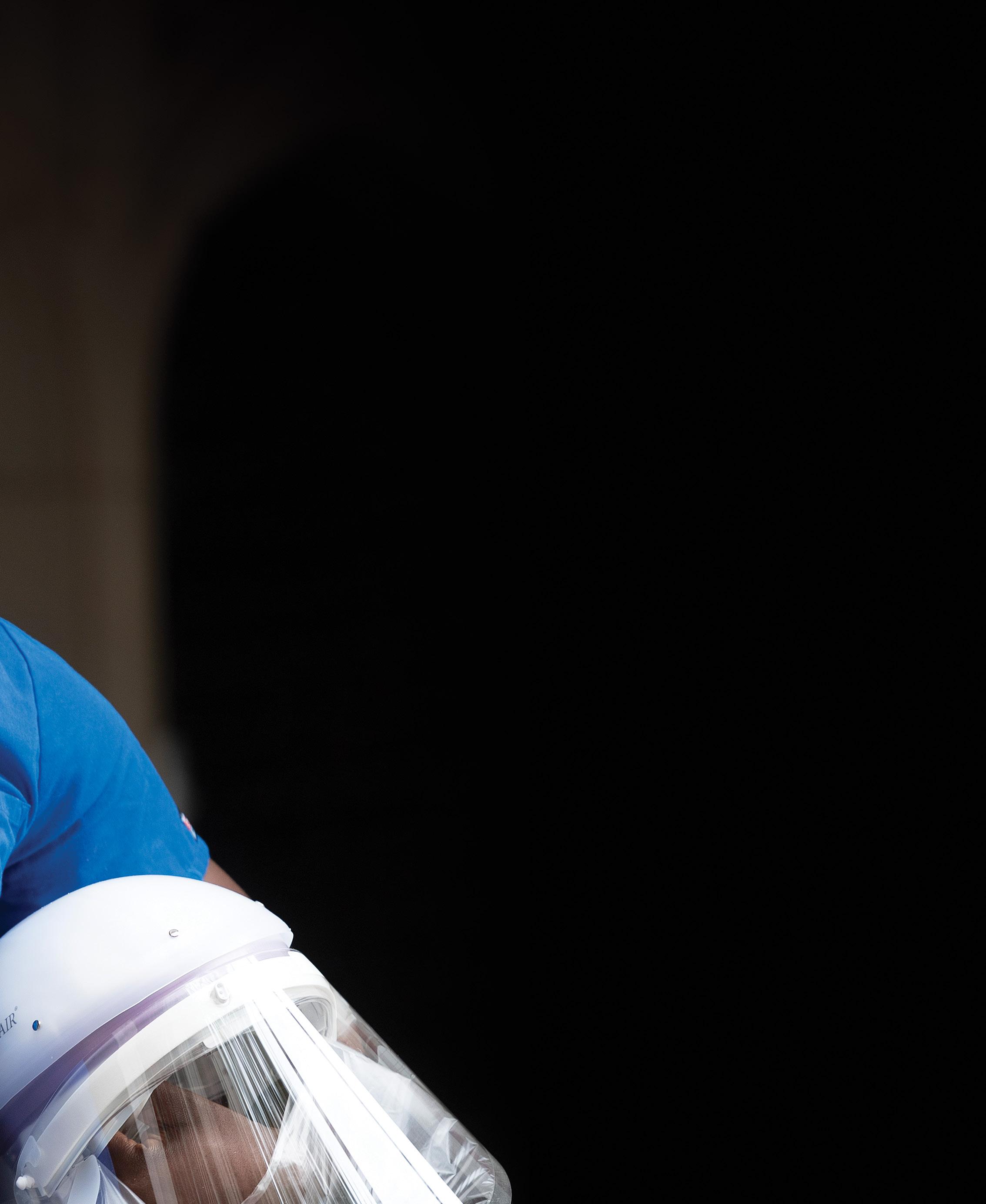
College of Nursing and Health students and faculty rise to the challenge of the COVID-19 crisis.
BY AUTUMN CAFIERO GIUSTI ’00
In 2019, the World Health Organization announced it would designate 2020 as the International Year of the Nurse and Midwife.
At the time, the intent was to celebrate the 200th anniversary of Florence Nightingale’s birth on May 12, 2020, and to honor the 9 million health care professionals who carry on her legacy. The WHO didn’t anticipate that the event would take on such dramatic significance, with nurses working on the front lines of the global COVID-19 pandemic. “It’s been joked about on social media that when we said 2020 was the Year of the Nurse, we didn’t quite expect this,” says Laurie Anne Ferguson, DNP, APRN, ANP-BC, FNP-C, CPNP, FAANP, FNAP, Dean and Professor in Loyola University’s College of Nursing and Health, which offers graduate programs in nursing, counseling, and ministry.
For faculty, students, and alumni of these programs, the pandemic has created unprecedented opportunities for teaching and learning. Faculty members, who must fulfill practice requirements in addition to their teaching responsibilities, can draw from their real-life experiences treating COVID-19 patients and impart that wisdom through distance learning. And students who practice as registered nurses can put those lessons into action in the ERs, ICUs and medical facilities where they work. “It’s part of our DNA – seeking excellence, wanting to improve things, serving others,” Ferguson says. The Jesuit ideal of finding God in all things and in all people has taken on even greater importance during the COVID-19 crisis. “Faculty in the college truly embrace our mission of educating men and women who will work to make the world a better place for all,” says Maria Calzada, Ph.D., Interim Provost and Vice President for Academic Affairs.
Commitment to service
Many faculty members, students, and alumni of Loyola’s College of Nursing and Health have felt compelled to answer the call to serve because of the Jesuit values that have been ingrained in them. One alumna, Sophia L. Thomas, DNP ’17, the current president of the American Association of Nurse Practitioners, recently visited the White House and spoke to the president about the needs of nurses and patients during COVID-19. (See sidebar.) Another graduate of Loyola’s doctor of nursing practice program, Kate Kemplin, MSN ’09, DNP ’13, was deployed to New York City to set up a field hospital to care for patients. Toussaint Battley III, DNP, FNP-BC, APRN, Assistant Professor in the School of Nursing, is one faculty member who has been serving on the front lines of the COVID-19 crisis. Battley puts in time each week at the emergency room of Ochsner Health System in Marrero, where he encounters how the virus affects patients.
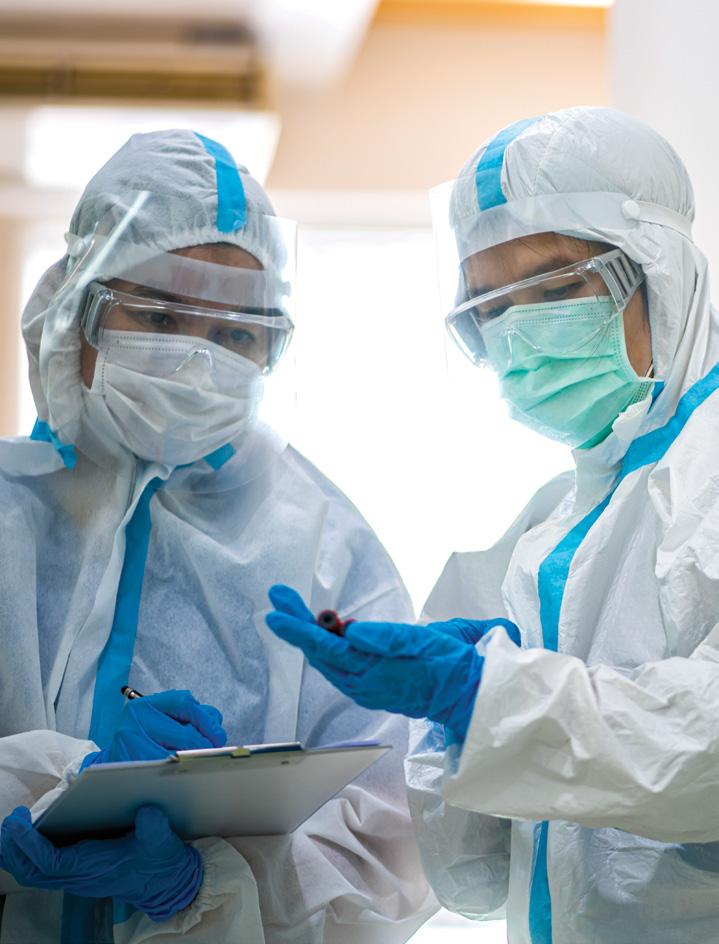
“Seeing a patient I admitted who came in stable and now two days later is on a ventilator is really an eye-opener,” Battley says. “It’s really been uncharted territory.”
As a nurse practitioner for over a decade, Battley has grown accustomed to getting fitted each year for N95 masks and respirators. Now, the need for that equipment has become very real. “Going to work and having to wear full body gear with a Hazmat suit to treat patients was a game changer.” Battley has witnessed illness and tragedy among his own colleagues.
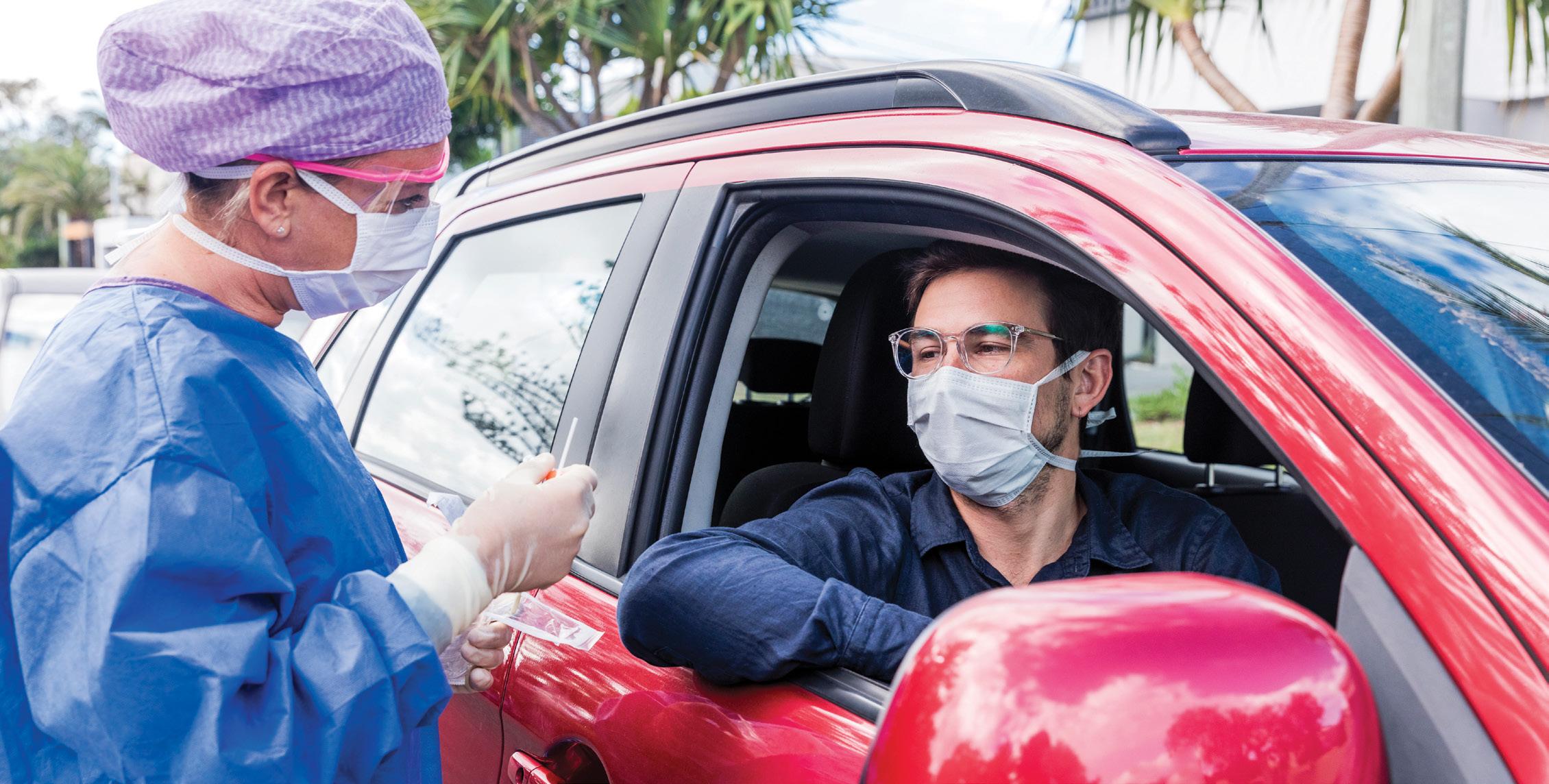
Loyola DNP alumna shares message about health care needs during White House visit
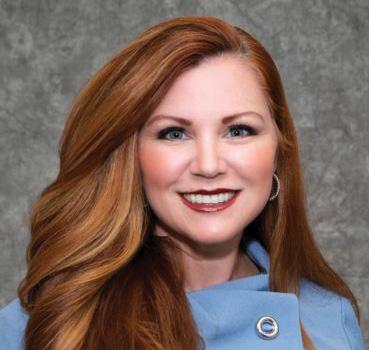
Sophia L. Thomas, DNP, FNP-BC, PPCNP-BC, FAANP, FNAP
A Loyola Doctor of Nursing Practice graduate recently had the opportunity to visit the Oval Office and speak to President Trump about the experiences of nurse practitioners treating COVID-19 patients.
Sophia L. Thomas, DNP, FNP-BC, PPCNPBC, FAANP, FNAP, who graduated from the program in 2017, and is president of the American Association of Nurse Practitioners, was at the White House on May 6 to attend President Trump’s signing of a proclamation recognizing National Nurses Day. "I think this is an opportunity, through COVID-19, to really look at the overall health of our country, look at the health disparities, and to see what we can do differently. I think you are in a very unique position to do some very innovative things with health care as we look forward on the horizon,” Thomas told the president. At one point during the event, a reporter asked about the availability of supplies such as personal protective equipment for health care workers. “I think it’s sporadic,” Thomas said. “As I talk to my colleagues around the country, certainly there are pockets of areas where PPE is not ideal. But this is an unprecedented time. And the infection control measures that we learned back when we went to school — one gown, one mask for one patient a day or per time — this is a different time.” Throughout the COVID-19 crisis, Thomas has been a prominent figure in the nursing community and has brought awareness to the needs of health care workers and patients during the pandemic. “Nurses, NPs and other advanced practice registered nurses are working tirelessly in communities across the nation to combat this epidemic, and we are committed to working with the president and federal and state policymakers to ensure patients have access to the highest-quality health care during and after this crisis,” she said. Thomas, who also works at the Daughters of Charity Health System in the New Orleans area, has been a leader in nursing for over 25 years. She has served as AANP president since June 2019. The association is the largest organization for nurse practitioners in any specialty, with a membership of 85,000 representing the 235,000 nurse practitioners in the U.S.
Several nurses he worked with became sick from COVID-19. Some went on ventilators and were able to fully recover. But one of his longtime colleagues, registered nurse Larrice Anderson, died from the virus and made headlines as one of the first New Orleans area nurses to succumb to the disease. “We go to work, and that’s what we were called to do,” Battley says. “But sometimes, we do it not even thinking about the danger we put ourselves in.” Battley’s firsthand experiences with COVID-19 have shaped the way he gives online lectures to his nursing students, and he’s been able tell them about what he’s seen and learned. “By me teaching and also practicing, I’m able to enhance the information I’m giving to students, and how that information can be applied to a real patient scenario. So when they graduate and become our next wave of health care professionals, they’re able to provide care,” Battley says.
Students who work as registered nurses are already putting those lessons to use. “A lot of the things we have taught them about population health, epidemiology and vulnerable populations and disaster preparedness and what to do in a pandemic, they are able to take those skills and apply them to their current practice as registered nurses,” Battley says. Many others who have been part of the nursing school also have played a role in responding to the crisis. Ferguson references two nurse practitioner faculty members who were recruited to work in New York City as registered nurses caring for patients at the bedside. “They felt they needed to be out there responding,” Ferguson says. “I spoke to one last evening, and it’s just mind-blowing the stories they tell.”
Distance learning advantages
One of the primary factors enabling the College of Nursing and Health to persevere during the pandemic is the fact that the school is well versed in distance learning and has been offering its programs online since 2012. “By providing their programs in online modality, they open access to this education to both remote places and to people right here
in the city who need to manage work, family, and educational responsibilities,” Calzada says. “Many now see, through the experience with the COVID-19 emergency, that we must continue to offer and perfect online delivery of our programs.” Being able to reach nursing students who wouldn’t otherwise be able to set foot on Loyola’s campus – and in real time – is one of the key benefits of online education. “By being online, we can go beyond the Greater New Orleans area, to the rural areas, the Baton Rouge area, to where we have students all over the state and provide a Jesuit-based education to them,” Battley says. Distance learning creates opportunities for students to share insights and observations from all corners of the world. “It’s rich in that there’s a geographic diversity,” Ferguson says. “People can say, ‘I’m in Washington state, and here’s what I’m seeing.’ Or ‘I’m in New York, and here’s what it’s like at ground zero.’ That’s a really rich classroom.” Even though Loyola is able to administer the lion’s share of its nursing education coursework online, the pandemic – along with a shortage of personal protective equipment – has disrupted clinical practicums, which students are required to complete to fulfill their nursing program requirements. “Thankfully, most of our graduating students had completed in excess of the required clinical hours at the time of the disruption and therefore will be able to graduate with all requirements fulfilled,” Calzada says.
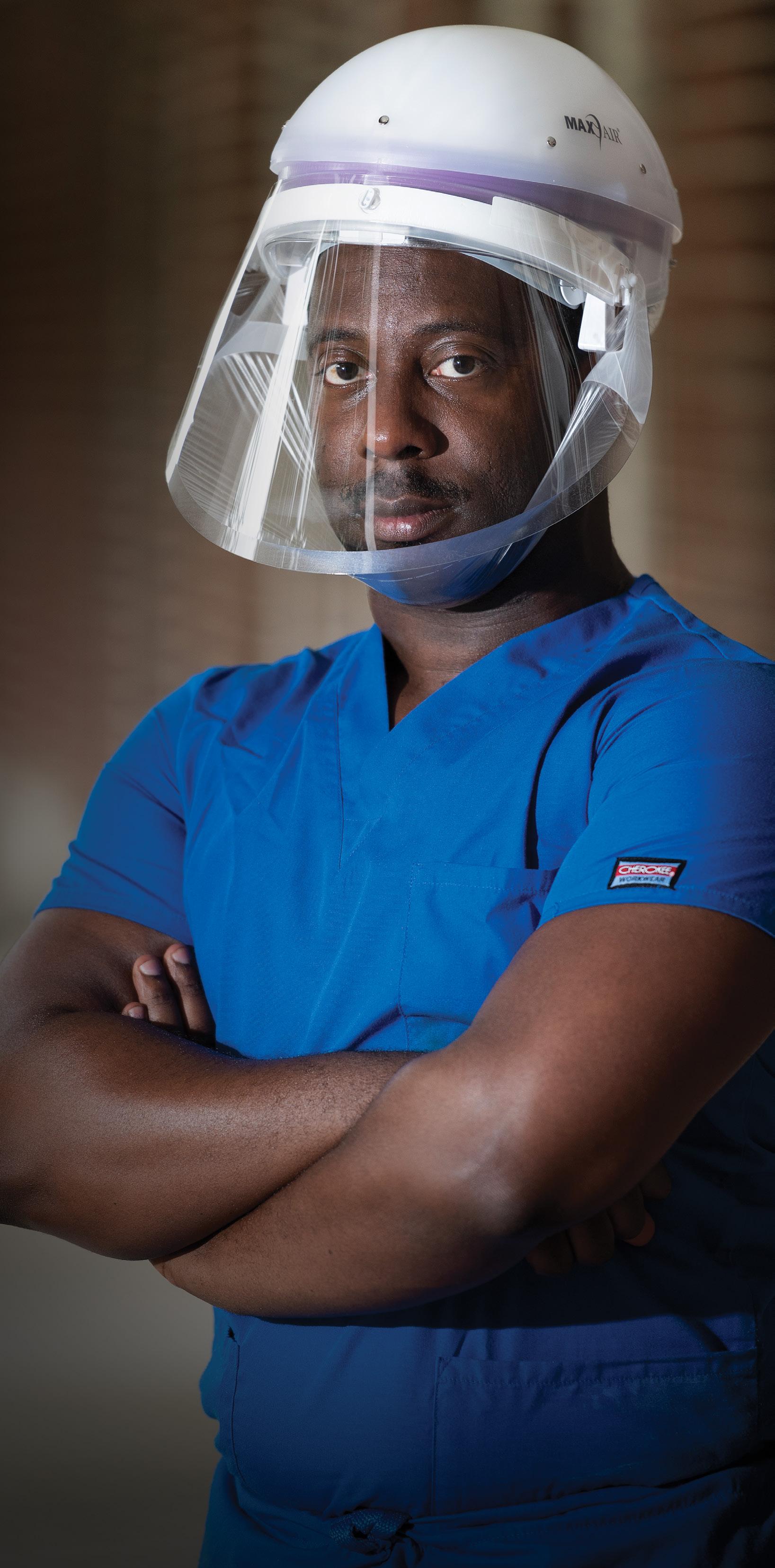
Because Loyola doesn’t have a pre-licensing program for registered nurses, all of Loyola’s nursing school students, including undergrads, are registered nurses. At the same time the pandemic interrupted their clinical work, it also created an urgent need for registered nurses. “So a significant number of our students have been active on the front lines caring for patients across the country,” Ferguson says. The nursing school has been exploring ways to restart clinical experiences for students in the summer and early fall. “We’re trying to be creative with how they can proceed with the regular term. I had similar experiences doing this post-Katrina, so we can get it done,” Ferguson says.
Putting mentors in place
Even in non-pandemic times, one of the challenges of educating nurse practitioners is finding qualified preceptors – experienced medical professionals who assist, evaluate and educate students during the clinical portion of their nursing studies. Because of
productivity demands in many health care facilities, becoming a preceptor simply isn’t feasible for many medical professionals. “There’s something very rewarding about being a preceptor. But it slows you down,” Ferguson says. “You see fewer patients per day, so you receive fewer reimbursements. And as smaller practices have been bought up by larger health care systems, the productivity requirements have been more formalized and provide an additional level of stress in terms of productivity. So these professionals cannot precept – even if they want to.” Educators have been looking to rural communities with smaller health care practices, where preceptor availability is much greater. There’s a dual benefit in this approach: Educators fill their need for qualified preceptors, and bringing in qualified care providers helps improve outcomes in rural communities with vulnerable populations. “Getting to a health care provider is not just about insurance for them,” Ferguson says. “It’s not just that they don’t have bus fare. There is no bus. So they can’t travel the half hour, 45 minutes or hour and a half to their primary care provider, much less a specialty provider.” Loyola has worked with the Blue Cross Blue Shield
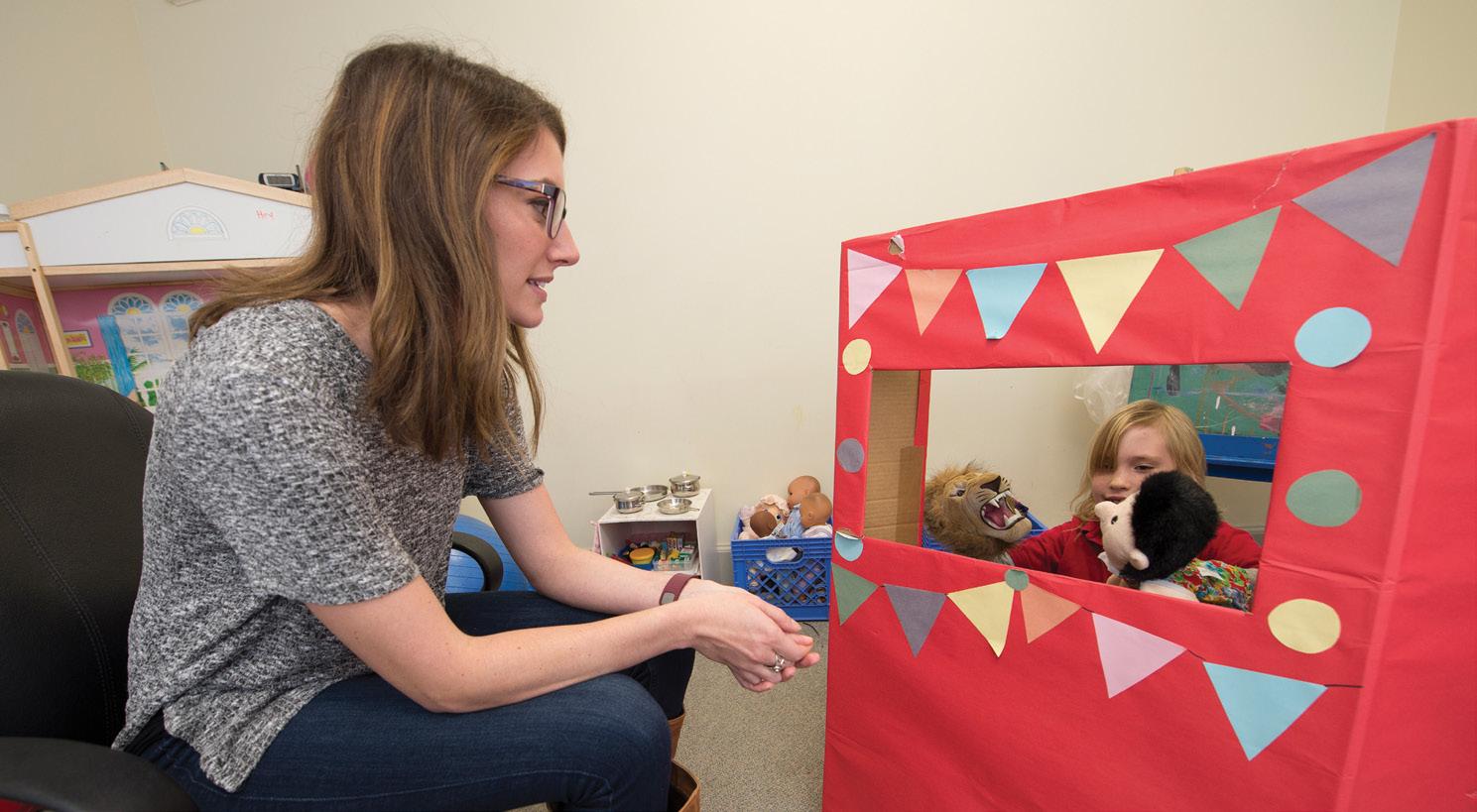
Louisiana Foundation to secure grant money to expand the network of preceptors across the state – a move that could prove especially beneficial as clinical practicums resume. “We’re hoping to facilitate that process and build a database for preceptors in rural areas,” says Ferguson, who herself practices in rural Louisiana.
Mental and spiritual health
“Mind, body, and spirit” is the motto of the College of Nursing and Health. By that token, the three disciplinary areas in the college — Nursing, Ministry, and Counseling — are fundamental to the Jesuit value of cura personalis, care for the whole person. Throughout the pandemic, all three departments have taken steps to maintain care of mind, body, and spirit. In addition to Nursing, the College of Nursing and Health works to provide for mental and spiritual health through the Department of Counseling and the Loyola Institute for Ministry. Loyola’s Center for Counseling and Education and LIM reach students on campus, online and in church parishes throughout the world.
Mental health has been of particular concern during the crisis, and university administrators felt strongly that the Counseling Center should continue offering its services. “One of the really cool things that counseling has done is to identify that our students working on the front lines are suffering from a lot of stress, and they have offered to provide telehealth counseling for nurses, students, and faculty who need help processing some of the really tough things that they’re seeing and managing,” Ferguson says. All areas in the college see service as essential to what they do. That service may be through a nursing clinical practice, through the faculty and staff serving the New Orleans community through the Counseling Center, or in the work of the Loyola Institute of Ministry with sisters in East Africa on Catholic Social Teaching and sustainability.
The service role of nursing and health professionals has only become more pronounced during the COVID-19 crisis. Nurses have been the ones to facilitate goodbyes between dying COVID-19 patients and the family members who are unable to be with them. The fact that 2020 is the Year of the Nurse, Ferguson says, could give the world a chance to see nurses in a new light.
“I think we often have difficulty finding God in all things – a core Jesuit principle,” she says. “And crisis is often an opportunity to develop innovative strategies to find solutions.”
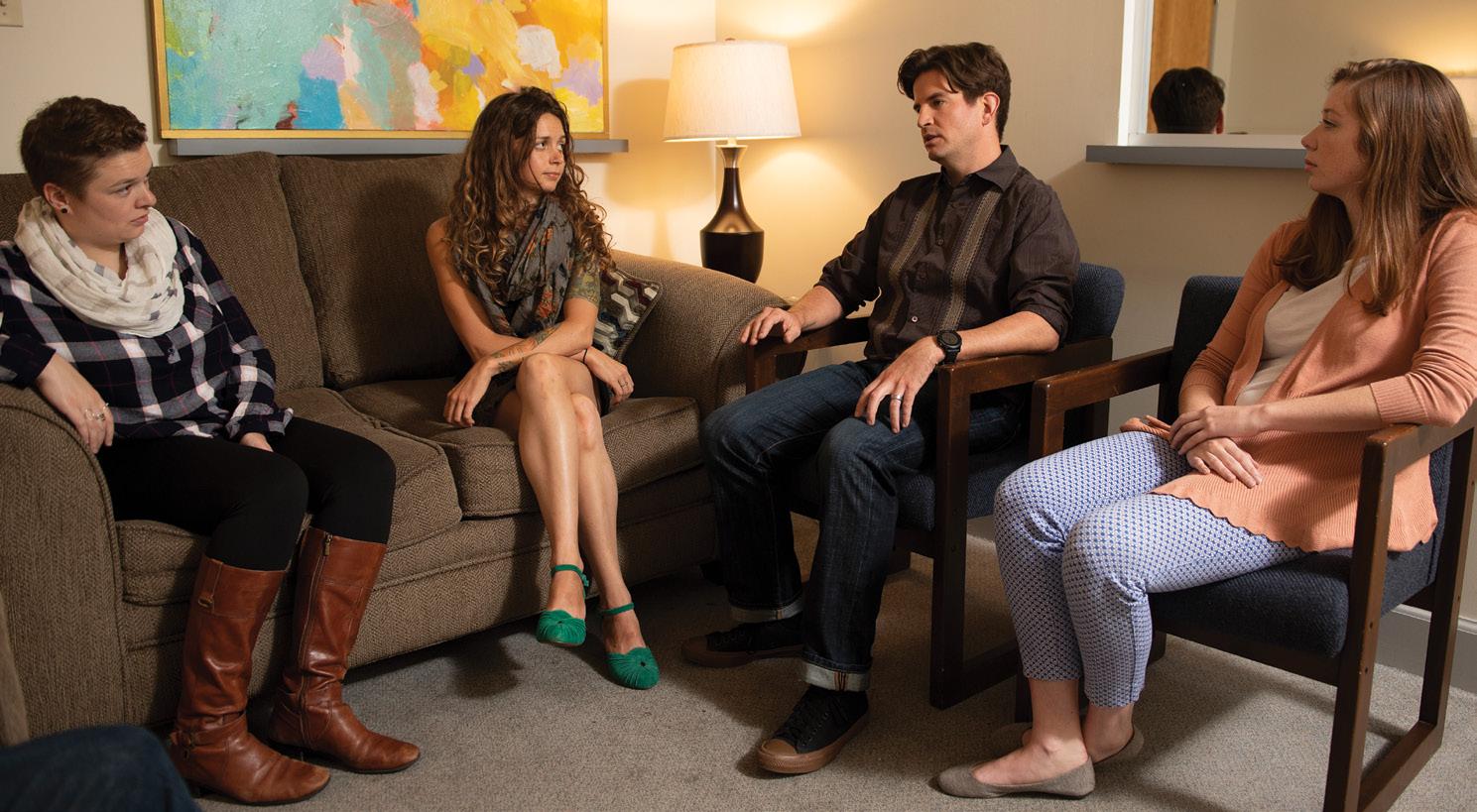
U.S. NEWS AND
WORLD REPORT
As Loyola University New Orleans expands its reach through online programs, U.S. News and World Report’s annual rankings put Loyola programs among the nation’s best, with several placing among the nation’s Top 50. A national university named among the nation’s Top 200, Loyola New Orleans received rankings for online programs in 2020.
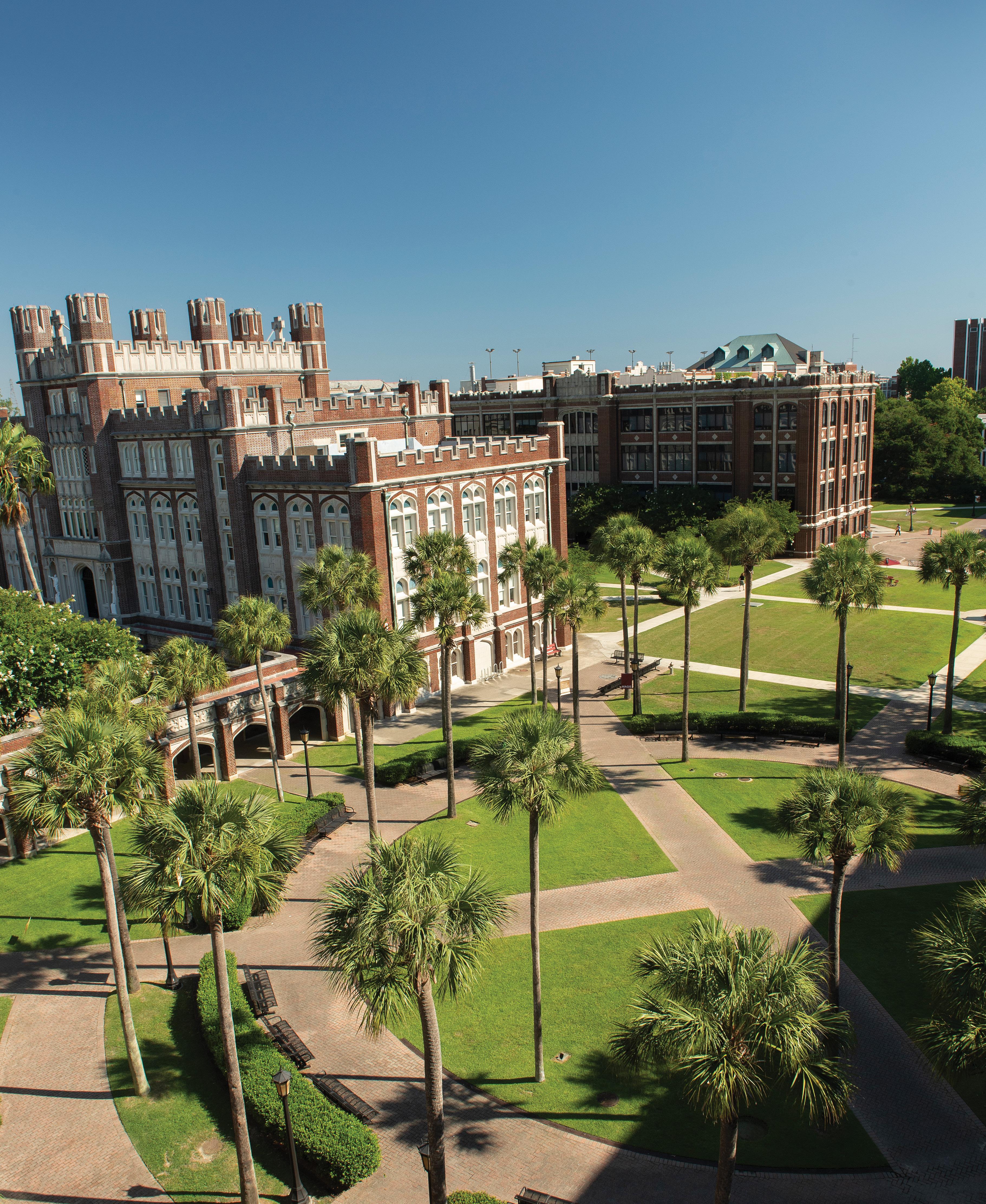
“Our online programs are a way for students to enjoy a Jesuit education from Loyola New Orleans, whether they are seeking to complete their undergraduate degrees or advance their careers through graduate study,” said Loyola Senior Vice President for Enrollment, Student Affairs, and Marketing Sarah Kelly. “We’re excited to see our programs recognized by U.S. News and World Report on a national level.”
Loyola currently has more than 800 students enrolled full-time through online programs and offers more than 20 online degree programs at the undergraduate level, as well as online master’s and doctoral programs. An online Bachelor of Arts in Interdisciplinary Studies is aimed at busy adults and working professionals seeking to complete their degrees.
#33 Best Online Graduate Program in Criminology and Justice
#41 Best Online Graduate Nursing Program
#9 (TIE) Master’s of Nursing –
Nursing Education
#143 Best Online Undergraduate Programs
#208 Best Online MBA Programs
#223 Best Online Master’s in Education









